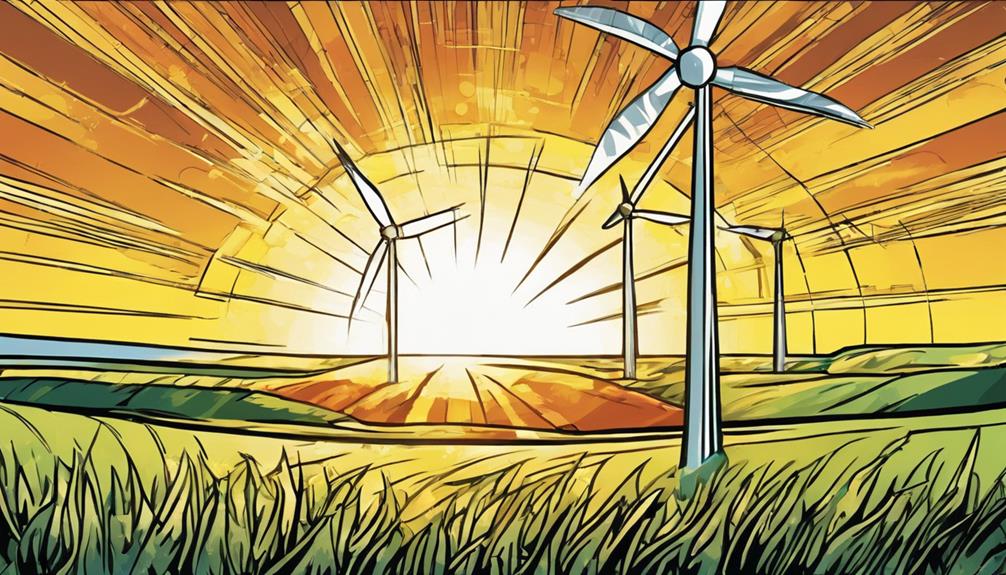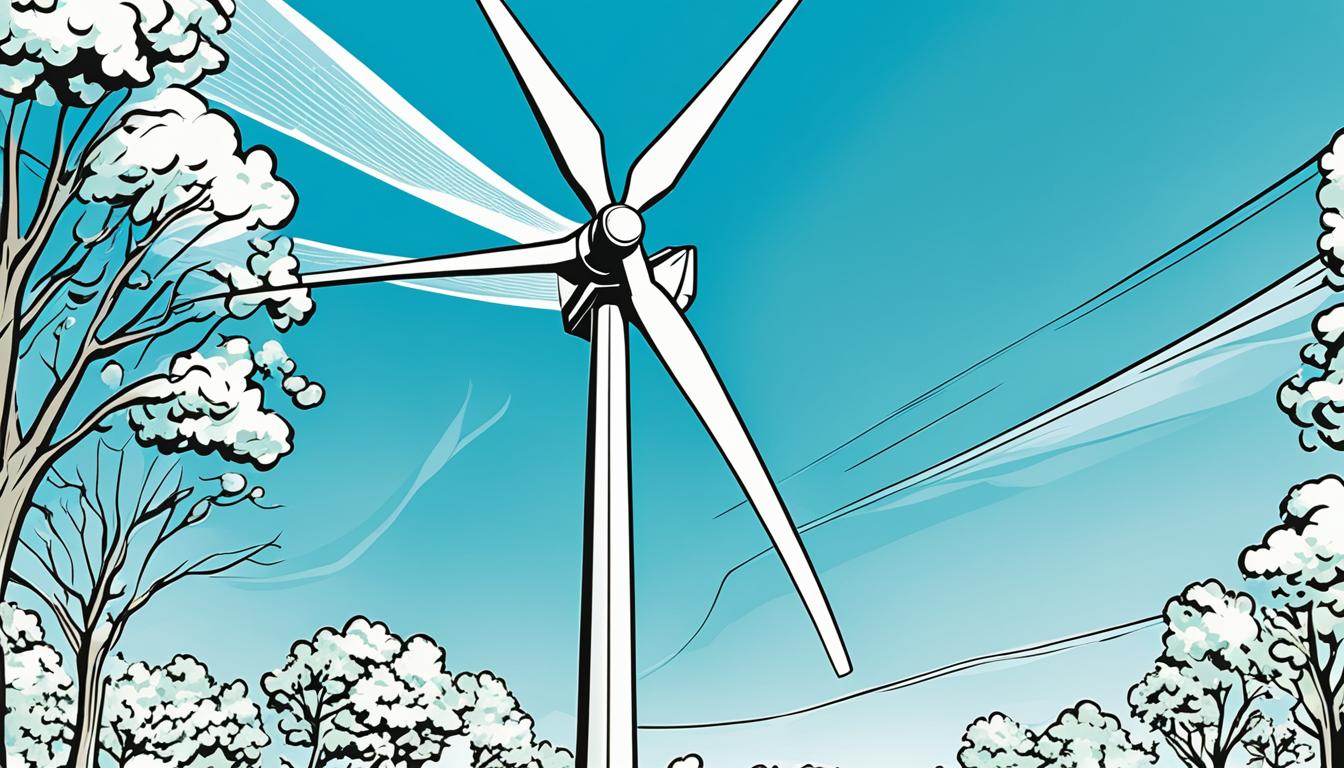Geothermal energy is used in various places in North Carolina, harnessing the Earth's stable ground temperature. It offers sustainable heating and cooling solutions. Not only that, the state has seen growth in geothermal jobs, reflecting a commitment to eco-friendly practices. By tapping into local resources, geothermal systems promote efficiency and environmental consciousness. These systems, overseen by the North Carolina UIC Program, are a key player in the state's sustainable energy landscape. Want to discover more about geothermal energy applications in North Carolina?
Key Takeaways
- Geothermal energy is used in North Carolina for heating and cooling residential, commercial, and industrial buildings.
- Geothermal systems are commonly installed in homes, schools, and government buildings across North Carolina.
- North Carolina utilizes geothermal energy for sustainable heating and cooling solutions in various sectors.
- Geothermal energy is employed in both urban and rural areas of North Carolina for efficient heating and cooling.
- Geothermal systems are integrated into new construction and retrofit projects throughout North Carolina.
Geothermal Heat Pump Systems Overview
Geothermal heat pump systems in North Carolina leverage the consistent ground temperature for efficient heating and cooling. These systems, also known as ground source heat pumps, utilize the stable temperature of the geothermal ground to transfer heat.
Among the various types of geothermal systems used in North Carolina, the vertical loop system is a common choice. This system involves drilling boreholes deep into the ground to circulate a heat transfer fluid. By tapping into the local geothermal resources, these systems provide a sustainable and environmentally friendly solution for residential and commercial heating and cooling needs.
To guarantee the proper construction and operation of geothermal systems, the North Carolina UIC Program oversees compliance with groundwater standards. Only certified professionals are authorized to install these systems, which contribute to the growth of the geothermal industry in the state.
With 370 geothermal jobs in North Carolina and a significant number of heat pumps installed nationwide each year, geothermal energy is becoming increasingly prevalent in the state.
Geothermal Energy Statistics in NC

Quantifying the impact of geothermal energy on North Carolina's clean energy sector reveals significant growth and potential. With 370 geothermal jobs in the state, North Carolina is making strides towards incorporating geothermal energy into its energy mix.
Geothermal systems are being utilized in a variety of residential and commercial properties across North Carolina, showcasing a commitment to sustainable energy practices. Annually, around 50,000 heat pumps with geothermal systems are installed in the United States, indicating a growing trend towards geothermal energy adoption.
Peter Ledford's presentation emphasized the promising growth and potential of geothermal energy specifically in North Carolina, shedding light on the positive trajectory of this renewable energy source in the state.
Organizations like the NC Sustainable Energy Association play an essential role in promoting geothermal energy and providing valuable resources for businesses and individuals looking to embrace geothermal solutions in North Carolina.
Geothermal Resources and Links

Considering the abundance of geothermal resources available, exploring various links and resources can provide valuable insights into incorporating geothermal energy into your energy solutions in North Carolina.
Geothermal systems in the state are used to both heat and cool residential and commercial properties efficiently. North Carolina's utilization of geothermal energy involves tapping into the heat stored beneath the Earth's surface, allowing for sustainable heating and cooling solutions. Geothermal energy in the state often involves systems that exchange heat with the ground or a nearby water body, making it a cost-effective and environmentally friendly option.
Peter Ledford's presentations have shed light on the potential of geothermal energy resources in North Carolina, and organizations like the NC Sustainable Energy Association actively support initiatives in this sector through donations.
Utilizing resources like the NCSEA's Business Member Directory can help you find local businesses specializing in geothermal energy, facilitating the adoption of this renewable energy source in your area.
Geothermal Regulations and Permits

Exploring the geothermal regulations and permit requirements in North Carolina reveals the essential steps for guaranteeing the efficient and compliant installation of geothermal systems in the state.
When delving into geothermal systems in North Carolina, keep in mind the following key points:
- UIC Program: Geothermal systems in North Carolina fall under the regulation of the UIC Program, ensuring proper oversight and compliance with environmental standards.
- Permits: Specific permits are required for the construction and installation of geothermal systems in North Carolina to secure safety and adherence to state regulations.
- Regulations: Certified professionals are mandated for the construction and installation of geothermal systems, ensuring that the work meets the required standards for efficiency and effectiveness.
- Impact on Groundwater: Well construction for geothermal systems can have implications on groundwater quality, emphasizing the need for careful planning and execution to prevent adverse effects.
Understanding and adhering to these regulations and permit requirements are vital for the successful implementation of geothermal systems in North Carolina.
Types of Geothermal Systems

Geothermal systems in North Carolina encompass a variety of types, including closed horizontal loop, open loop well water, vertical loop, and lake or pond loop systems. These systems are used for geothermal heating and cooling by transferring heat to and from the ground.
Closed loop systems circulate a mixture of water and antifreeze through underground pipes to exchange heat with the earth. Open loop well water systems pump water from a well to transfer heat, requiring good water quality to prevent clogging and corrosion.
Vertical loop systems involve pipes drilled deep into the ground to maximize heat exchange surface area. Lake or pond loop systems utilize water sources for heat transfer, ideal for locations with access to bodies of water.
Understanding these different geothermal system types is essential for efficient HVAC systems and sustainable energy practices in North Carolina.
Frequently Asked Questions
Is Geothermal Energy Used in North Carolina?
Geothermal energy is indeed used in North Carolina. It powers over 370 jobs and heats/ cools homes and businesses efficiently. The state is part of the clean energy movement, embracing geothermal technology for sustainability.
What State Is #1 in Geothermal Energy?
California is #1 in geothermal energy. It leads the US with 170 utility-scale geothermal plants. North Carolina sees over 50 geothermal heat pump systems yearly, supporting 370 geothermal jobs. Geothermal energy is utilized for heating and cooling in various applications.
Where Are Places That Use Geothermal Energy?
You'll find geothermal energy bubbling beneath the surface of North Carolina, fueling schools, hospitals, and even homes with its sustainable warmth. From Chapel Hill to Raleigh, it's a hot trend in efficient heating and cooling.
What Is the Source of Energy in North Carolina?
Geothermal energy is the source of sustainable heating and cooling in North Carolina. It is harnessed for residential and commercial systems, with over 50,000 geothermal heat pumps installed annually. The UIC Program regulates geothermal operations, ensuring efficiency and compliance.
How Is Geothermal Energy Being Utilized in North Carolina for Electricity Generation?
Geothermal energy for electricity generation is being utilized in North Carolina through the development of geothermal power plants. These plants tap into the natural heat of the Earth to produce electricity, providing a renewable and sustainable energy source for the state. This approach helps reduce reliance on traditional fossil fuels and lowers carbon emissions.
Conclusion
To sum up, geothermal energy is being utilized in North Carolina through geothermal heat pump systems, providing efficient and sustainable heating and cooling solutions.
Remember, as the saying goes, 'Don't put all your eggs in one basket.'
Consider exploring geothermal resources as a reliable alternative energy source for a greener future in the Tar Heel State.










